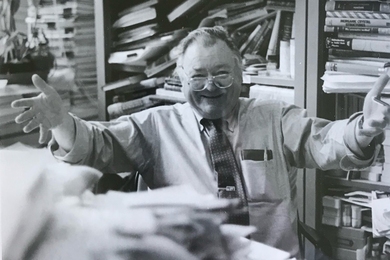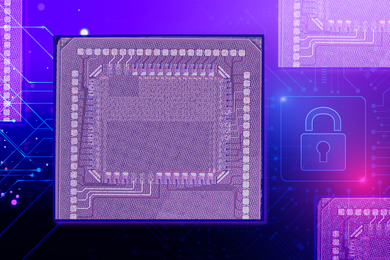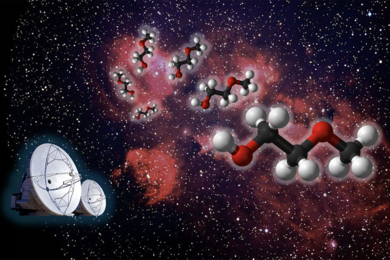The master's of engineering (MEng) program received high marks on its five-year review from the Professional Education Policy Committee (PEPC), Professor Paul Penfield Jr., head of electrical engineering and computer science, said at the December 16 faculty meeting.
Professor Penfield said about 200 degrees have been awarded each year under the MEng program starting in 1994, with 50-80 students continuing to work toward a PhD.
With 75 percent of EECS students qualifying after their junior year, 70 percent are admitted to the program and 65 percent enroll, according to the report, written by Professor Jesus del Alamo, PEPC chair.
"Student satisfaction is very high," the 48-page report says.
When the program was introduced, the model was based on 290 sophomores majoring in EECS. The number reached 363 last semester.
While "the data indicate that the MEng is largely satisfying its education goals," the report says, increased enrollment, particularly in computer science, could have a negative effect on traditional SM and PhD programs, leading to faculty hiring difficulties in the future.
"Junior faculty in computer science [have] been particularly affected by this state of affairs," the report says. "For them, it is difficult to teach their specialty at the graduate level. If not redressed, the malaise that exists among sectors of the EECS faculty might affect faculty hiring and retention."
Before the briefing on the MEng report, the faculty voted to establish a PhD program in bioengineering. Director of Personnel for Benefits and Systems Marianne Howard also reported on proposed changes in the pension plan. Institute Professor Sheila Widnall, chair of the Faculty Policy Committee's subcommittee on pensions, said, "We feel comfortable that the changes which will go into effect on Jan. 1, 1999 will be fair and provide a benefit to plan participants."
A version of this article appeared in MIT Tech Talk on January 13, 1999.





